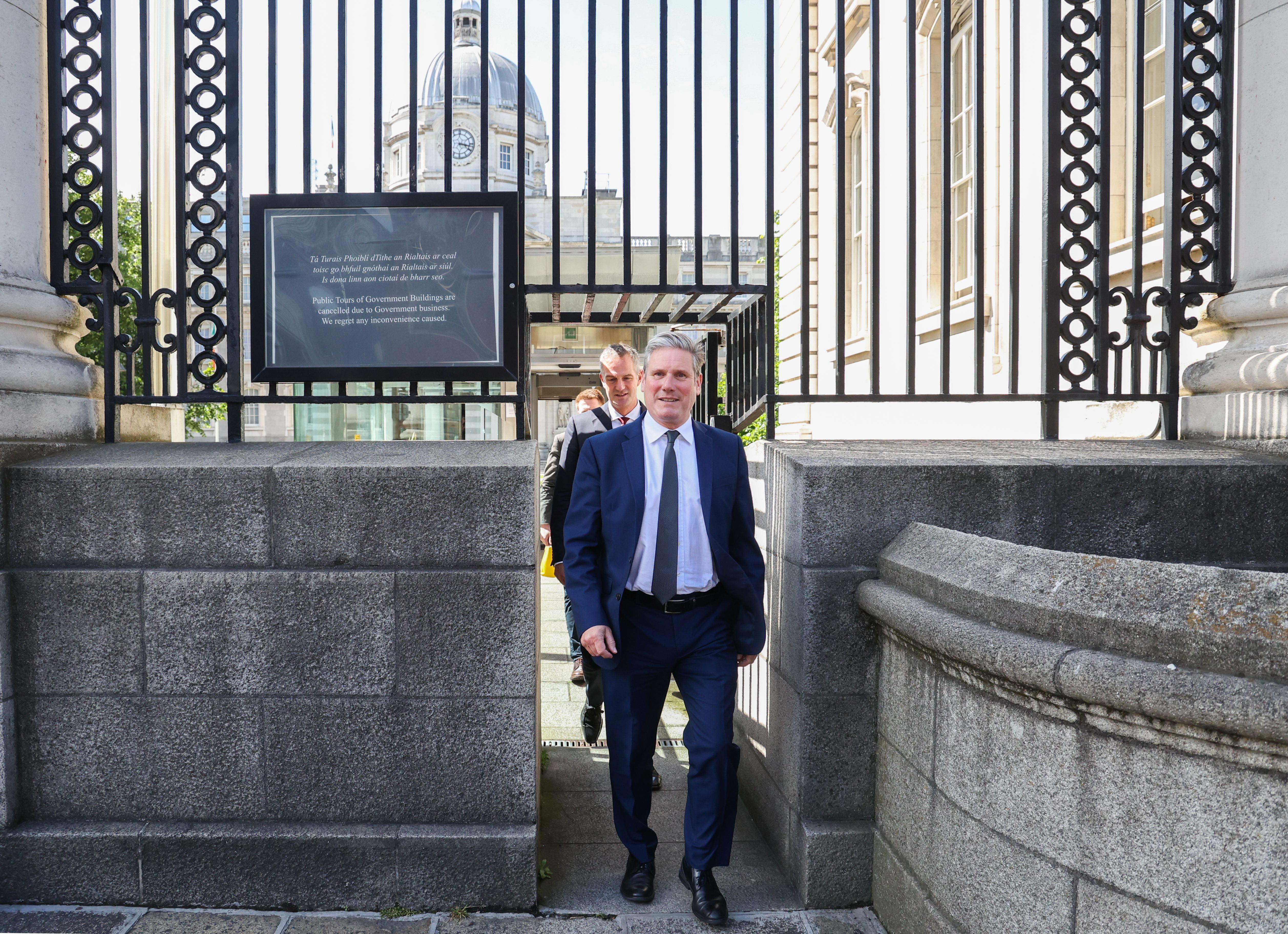WILL things really change or remain much the same? All the signs are that the change of government at Westminster equals continuity austerity, at least in the short term. And we don’t even have to wait until 30th October (budget day) to find out, as the signs are already there. Starmer’s government has gone out of its way to reassure financial markets that investments are safe in Labour’s hands and that “economic growth” is the number one priority. The pre-budget policy choices already made are depressing, the messaging even more so. Mission? Reduce expectations, crush hope.
Before going there, we cannot ignore the glasses/suits/dresses/apartments “gifts” scandal. “Honest” Labour doesn’t seem to understand that if you run on a ticket of ending the “chaos of sleaze” at Westminster, then it looks bad if your wardrobe is being sponsored by Lord Waheed Alli, the ex-investment banker and successful owner of various TV production companies. Beneath the surface of the clothes, we find that not only has Alli personally donated half a million to Labour, but also that he led the Party’s pre-election fundraising. This seems to have bought him a pass to No. 10 Downing Street for a while.
Many of our problems arise from political corruption.
— Prem Sikka (@premnsikka) October 19, 2024
Politicians expect/accept gifts and freebies.
The donors get access, influence, contracts.
Must fight back: I asked parliament to criminalise the receipt/giving of freebies.
Must cleanse politicshttps://t.co/AcJ4wyg5xr
Sponsorship of the Labour government goes much deeper than clothing and involves stronger forms of influence on policy. Prior to the election, personnel from banks, think-tanks and consultancy companies were seconded to the party to help shape all kinds of policies. Some of these were from within “the Labour family”, such as Lord Mandelson’s (SoS NI 1999–2001) Global Counsel consultancy, or Tony Blair’s Institute which has become “one of the most prominent advocates for artificial intelligence outside Silicon Valley.” (See Helen Lewis, The Atlantic, 21/07/2024.)
Buying influence also shapes foreign policy. Over half of Cabinet members – including Foreign Secretary David Lammy, Home Secretary Yvette Cooper and Trade Secretary Jonathan Reynolds (overseer of arms exports to Israel) have received donations from Labour Friends of Israel. The total exceeds £300,000. According to Open Democracy, Labour’s largest ever donation came from hedge fund Quadrature Capital which holds $121m worth of shares in a range of arms, tech and logistics firms which have all supported, and profited from, the ongoing military campaign waged by Netanyahu’s regime.
🇮🇱Pro-Israel lobby groups and individuals have donated to 13 out of Labour’s 25 cabinet members, Declassified has found.
— Declassified UK (@declassifiedUK) October 19, 2024
The list of recipients includes Keir Starmer, his deputy Angela Rayner, chancellor Rachel Reeves, and foreign secretary David Lammy.https://t.co/xEdyiQw6zs
There are clearly many issues that need to be sorted out including limits on party donations in cash and kind, declarations of interest and the rules around lobbying. The weak policing of the rules is another matter.
DUP’s Sammy Wilson and Ulster Unionist Lord Rogan ‘did not highlight Cyprus trip’ ahead of asking parliamentary questions https://t.co/DNExPIQdbl
— The Irish News (@irish_news) October 3, 2024
It is worth following the work of investigative journalist Peter Geoghegan of “Democracy for Sale” fame. It was Geoghegan (and Adam Ramsay of Open Democracy) that exposed the DUP sponsorship of a wraparound Vote Leave advertisement carried on the front and back pages of The Metro (a free newspaper) in England shortly before the Brexit referendum. The DUP was gifted over £600,000 for this and other things, but has never revealed the source. In August, Geoghegan wrote, “the closer Labour got to power, the closer the business lobby got to Labour” and Starmer doesn’t realise this is a problem.
It simply doesn’t smell right when the government is receiving all this sponsorship while facing down the demand to remove immediately the despicable two-child limit within universal credit. What next? A two-child limit on schooling or health care? It is a truly indefensible policy that is driving child poverty rates higher. It is also a false economy.
Another policy leading to increased poverty is the decision to means test the Winter Fuel Payment, ironically first introduced as a universal benefit by the Blair government in 1997. The new policy is to restrict the WFP to pension credit claimants only. While the take-up of pension credit is thought to be higher in the North compared to Britain (72 per cent vs 63 per cent of those eligible), there are many more people marginally above the pension credit threshold who stand to lose. Besides, there is no way that take up will be increased to 100 or even 90 per cent in the time available, and the government knows this. If the issue is rich pensioners receiving a benefit they don’t need, then tax it back through the income tax system or get them to pay some national insurance contributions. Again, the policy could well end up costing more than it saves on paper (e.g. in administration, health and social care costs).
A third attack on those in the most vulnerable financial circumstances comes from work and pensions secretary Liz Kendall who, according to the Financial Times, “will press ahead with £1.3bn in annual cuts to UK sickness benefits announced by the previous Conservative government”.
UK ministers to stick by Tory plan for £1.3bn of cuts to sickness benefits https://t.co/jiWOf6q2Uo
— Financial Times (@FT) October 17, 2024
Those three definite policy decisions are surrounded by a whirlwind of speculation around the budget, the hole in public finances and manifesto commitments. The noise is amplified by the debates around “fiscal rules” which are lost on most people. One thing to note about such rules is that they are made to be broken and then changed. The EU has a set of fiscal rules (more than half of member states are currently in breach) and member states have their own rules within those rules. Ireland’s recent electioneering budget was a flagrant violation of the rules as the Fiscal Advisory Council complained.
Ireland's fiscal watchdog IFAC on #budget25:
— Paul Colgan (@paulcolgan) October 1, 2024
"It repeats Ireland's past mistakes of pumping billions into the economy when it is at full employment".
Says Ireland needs a 'more serious vision'.
When the Tories made their failed electioneering cut in national insurance contributions, costing over £19 billion, Labour could have responded by defending the principle of social insurance and exempting this from their pledge not to increase income tax and national insurance “for working people”. Starmer’s manifesto commitments not to increase taxes (including VAT and corporation tax) that provide 88 per cent of revenues (the figure for 2023/4) are a self-imposed straitjacket that will mean cuts in many government departments.
What does the Labour government actually stand for? Only one of the five missions in the manifesto sticks in the mind and that is “economic growth” – the aim to secure “the highest sustained growth in the G7”. This is alarmingly conventional and sweeps aside 50 years of criticism of growth agendas for their failure to understand the “limits to growth” arising from the Earth’s planetary boundaries and the claims of global social justice, as set out in Kate Raworth’s Doughnut Economics. Labour does have a mission that touches on the climate crisis – to “make Britain a clean energy superpower” – but they have already pledged to stick with the Tory policy of shovelling billions into the fossil fuel industry’s pet project of carbon capture and storage.
Carbon capture plan is a colossal waste of money.https://t.co/STwN4z7dR4
— Dr Paul Dorfman (@dorfman_p) October 15, 2024
As for the North? “There are no easy answers. The Executive must live within its means.” (SoS Hilary Benn). Thanks for the lecture.







